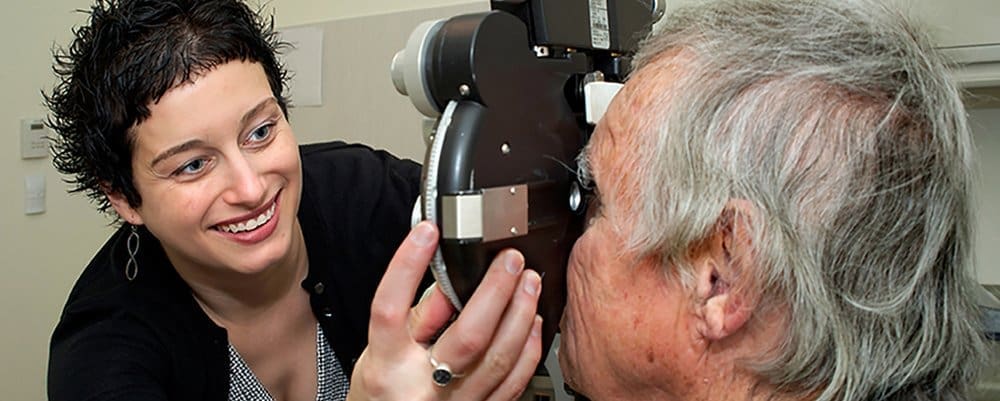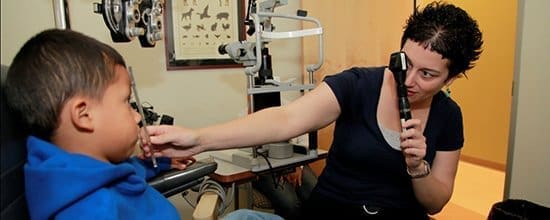
Q&A with Tonya Watson, OD, PhD, Lead Optometrist
Q Why is it important that vision problems be addressed?
A We all know the importance of having good vision, but many don’t know how critical it is to identify and address vision problems early on. Children need to be evaluated for near- or farsightedness when they are young.
Although nearsightedness is easily corrected, farsightedness is another story. If it is not immediately addressed, it can lead to “lazy eye.” This condition is impossible to correct later in life and the child will never be able to see well with or without glasses if they are not treated when they are young.
Astigmatism (where the eye is not perfectly round) can also lead to “lazy eye” if eyeglasses are not prescribed. Also, adults with diabetes require frequent exams and possible treatment for a condition called diabetic retinopathy, which can lead to blindness if not treated. Eye health is important!
Q What services do you offer?
A In January 2013, we opened one of the first community clinic optometry programs in the Bay Area. As with many of the Clinics’ programs, it has grown in response to community need. Today, we operate the program five days a week at two sites – the Novato and San Rafael Campus Clinics.
The Clinics’ primary care providers refer all diabetic patients to us for a dilated eye exam… They also refer adults and children who may need corrective lenses or have other eye problems. We conduct a comprehensive eye exam, determine their prescription, and make arrangements with optical labs to produce eyeglasses.
Also, we are often are the first to diagnose eye diseases such as cataracts; we treat some conditions ourselves and refer others out for surgeries and other procedures. Clearly, a need is being met. Just last year, we saw 4075 patients, 25% of whom were children. We distribute about 180 eyeglasses per month and are always busy!
Q How do you staff the program?
A MCC has a highly successful partnership with the University of California Berkeley School of Optometry. Each year, our team of four UC optometrists mentors approximately 20 fourth- year optometry interns who see patients under our supervision. It’s a “win win” for everyone – the students receive real-world training and the patients receive state-of-the art care from one of the top optometry schools in the US.
Q What if a patient can’t afford the care?
A Many of our low-income patients are now insured through Medi-Cal’s Partnership Health insurance program, which pays for exams and eyeglasses (1 pair every 2 years). If a patient is uninsured and cannot afford care, exams are provided on a sliding fee scale. UCB provides eyeglasses at a reduced rate ($55 – 75); however, if the cost is still a burden, the Cahill Family Eyeglass Fund generously covers the full cost of a pair of glasses.

